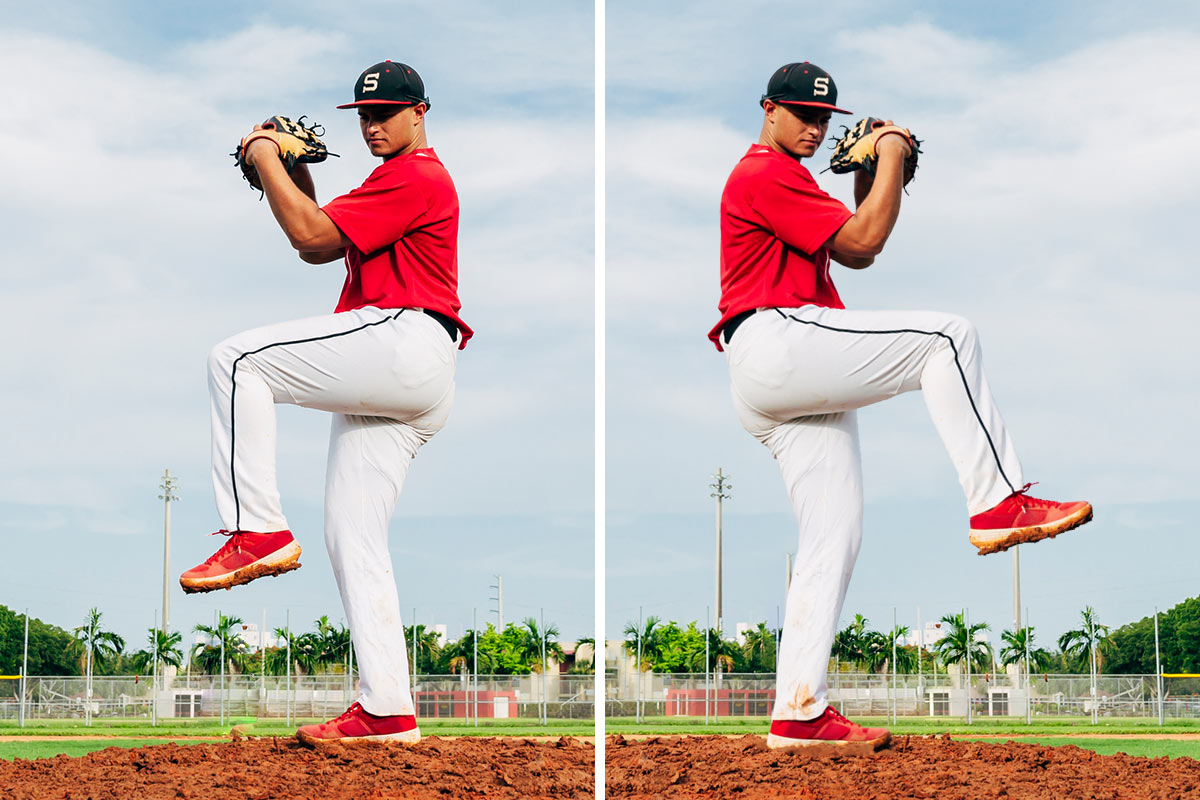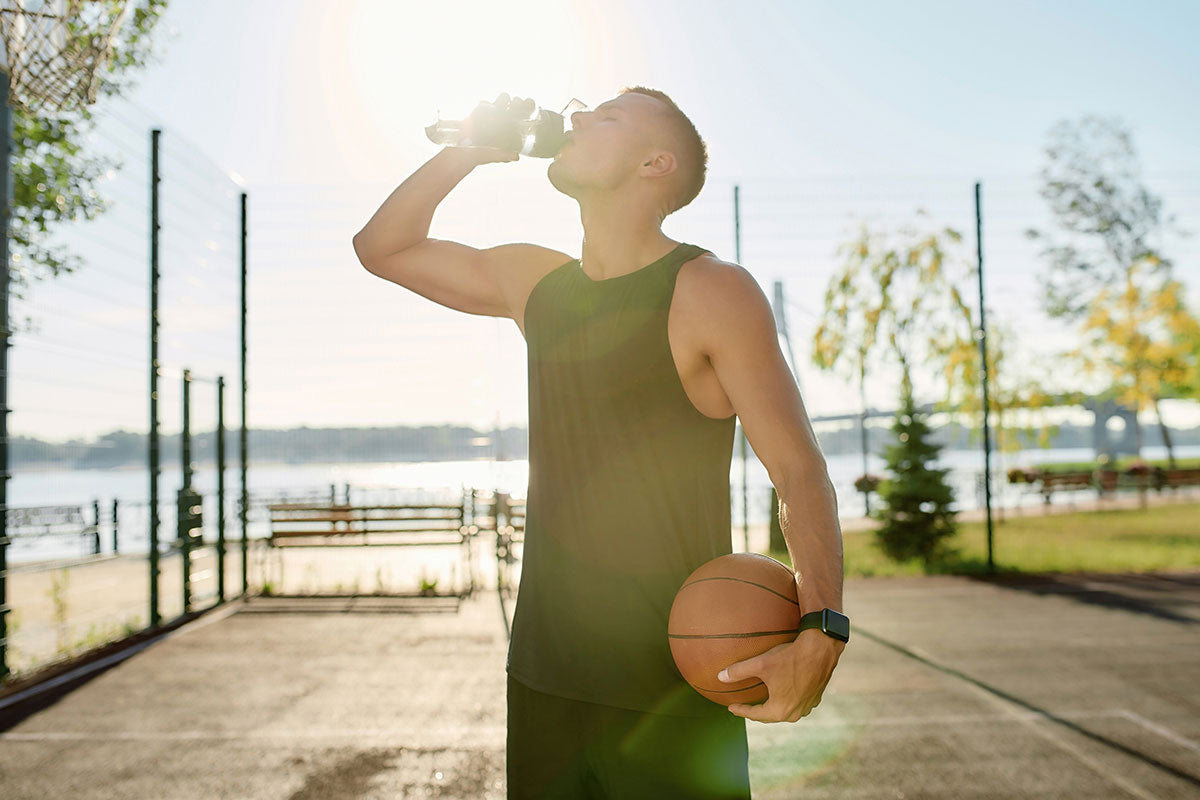Leading up to the 50th anniversary of Title IX this month and the 2023 Women’s World Cup qualifying this month, we sat down with soccer celeb and Six Star Pro’s Ambassador of Active Nutrition Kristie Mewis to discuss everything from how Title IX impacted her career in women’s soccer, the significance of being an LGBTQ+ public figure, sibling rivalry and her go-to nutrition tips.
Six Star: It’s been really cool to see the international growth of soccer. From a standpoint of playing for the US women's national team, which is more competitive than ever, how do you balance the growth of the game overseas with understanding that there's more competition than ever?
Kristie Mewis: I love that it’s keeping the NWSL on their toes a little bit in the other leagues because Europe is doing so well right now. They're investing so much money and there were 95,000 fans at the women's Barcelona game. It's definitely getting more competitive—and around the world, women's sports are growing so much and women's soccer is growing so much. It's so exciting to see. It's pushing the boundaries of what we can accomplish next. That's where we need to be and that's why it's just going to get better and better—because of the competition—and because of everything that’s getting accomplished and how much it's growing.
Also Read: Best Creatine for Women
SS: You've had the fortunate opportunity to play overseas. What was that experience like as an American athlete? And what is the conversation like about what's going on globally with your sport?
KM: I enjoyed my time so much. I played in Japan, Germany and also in Australia for a hot second. But that was years ago. It's so crazy to see how so much has changed since then. It's definitely growing. It's so exciting to watch women's games. I'm able to watch so many of the games in Europe now without having to log into all of these things. It's super exciting and so much fun. I enjoy supporting women's sports all around the world, and it's so great that it's more accessible now. And I want to be a part of it, impact it and help as much as I can.
SS: How have you been impacted by Title IX? When did you first start to appreciate the history behind it and some of the opportunities that exist today?
KM: I think I was probably getting the benefits from it when I didn't realize it because I was only 10 or 11 years old when it first started happening. I was too young to truly understand what it meant, but I think it probably first started impacting me when I was going to youth national team camps when I went to College. That's truly when I first started feeling that this means something, like I'm going somewhere with this, I can make this a career. Whereas I think of my mom at my age, they didn't really feel the same support that I felt. I always had this dream of being a professional athlete, and it was able to happen because of all of the women before me and because of Title IX.
SS: Tell us the story about your Mia Hamm jersey and your first jerseys growing up.
KM: [Laughs] I had a jersey before, but it was just a t-shirt jersey, and I wore it all the time. I don't think I ever took it off. The actual jerseys were so much more expensive because it was the real fabric, just everything. When I finally got that [Mia jersey], when my parents got it for me, I couldn't even wear it, I couldn't touch it. It just sat in my room. I would look at it every single day, and it was so special to me that I didn't want to ruin it. My parents probably still have it somewhere at their house, because it was my first jersey. Getting that changed everything for me because I wanted to wear it one day.
SS: What was it like seeing boys in the Mia Hamm jersey for the first time and how big that moment was to see it cross a whole bunch of demographics like that.
KM: It truly showed how far we had come and how much it was growing. Of course it was amazing to see when little boys would have the Mia Hamm jersey on because it just shows that it doesn't matter if it's a man or a woman. You can look up to whoever you want. You can look up to talent, you can look up to anything. That was obviously a huge transitional moment.
SS: You mentioned having a tremendous sweet tooth. How have you dealt with nutrition, especially having every culinary option at your fingertips in New York City? How do you ensure to eat clean and feed your body so you can run five miles a game, unlike many other athletes.
KM: Nutrition is obviously super important. It's something that I changed a couple of years ago and it dramatically helped my game. Incorporating protein into my diet has changed everything for me, and I obviously love Six Star Pro Nutrition protein. I have it in my smoothies and I absolutely love it. Nutrition is so important because it can take you to a whole different level. It's about building good habits. It's good to have a good diet, but I think that it's also important to cheat sometimes [laughs].
SS: You played at Boston College and you're a couple of years removed from that now, but how do you feel about the kids who are able to take NIL deals now—knowing you were very good. How much do you wish you had those opportunities?
KM: Everything that happens now with the kids is bittersweet because obviously I would have loved to have something like that, but it is pretty cool that I kind of helped pave the way for them. It's incredible. It has been necessary for so many years, and again, it's just another huge step in the right direction for all sports.
SS: With June being Pride month and you and Sam (Kerr) living a rather public relationship, how surprising has it been to see the attention that you've received?
KM: It's really fun. I mean, she's just everything. She's incredible. And I think it is really important for us to be authentic and be who we are, and we want to share that with our fans. We want to share that with the world because if we can change one or two lives and how they feel about themselves or how they feel about how they choose to love and live their life, that's super important. Being comfortable with who you are is so, so important. And we want to show everyone that it’s OK.
SS: Your sister, the other Sam in your life, how competitive were the two of you growing up? How have you fueled each other's competitive fire?
KM: We were super competitive growing up, but it’s changed who we are as players and who we are as people. I think it’s made us better players and better people. Having her growing up was the best thing that could have ever happened because we pushed each other. We were competitive. We were out in the backyard for hours every single day. It was like a weird relationship, we were so competitive that we weren't really friends…but we did everything together. I think that helped both of us get where we are today as players and as people.
SS: Was there any sibling rivalry growing up? Cleats through a wall, broken bones, that kind of thing?
KM: There weren't really too many injuries, I would say, but there were definitely a lot of tears and my parents had to deal with a lot. In the end, it was all good for us but probably very difficult for my parents to handle, I would say.
SS: What were you like as a high-school athlete?
KM: As a high school athlete, I was a different player than I am now because I was smaller, I was faster and I played forward. I was kind of like that number nine. And then I grew and changed my game a little bit and turned into something different. But I think having those attacking skills when I was younger has helped me be a better attacking midfielder now.
SS: What’s an example of something you'd consider a failure or disappointment professionally and how have you learned from it?
KM: It's hard to call it a failure because it built me into who I am now, but throughout my professional career there were a couple of years that I wasn't living up to the fullest that I could be, and I wasn't playing the soccer that I knew I could. I was just kind of sleepwalking through part of my career. I failed myself a little bit with that. But also if that hadn't happened, I wouldn't be where I am today. So it's hard to call it a failure, but I definitely think I wasted a couple of years.
SS: What’s an opposite example of that, a professional success that you look back on proudly?
KM: I was really proud of winning the Challenge Cup. I know it wasn't winning the League or anything that big of a deal, but in a really difficult time, my team was able to win something that, at the time, was really special. It felt good to finally win something because I hadn't won that much stuff throughout my career. I've been on some good teams and I've obviously played well, but I hadn’t won a lot of things. To win something like that was really cool.
SS: You grew up in an area obsessed with sports, and you grew up at a time between ’99 Women's World Cup, Patriots, Red Sox, UConn Women’s Basketball. How has that defined sports and how do you carry some of that?
KM: Growing up on the East Coast, especially Boston—it's such a sports city—I had so many teams and so many great athletes to look up to. It was kind of hard not to be so obsessed and excited about soccer. So it was super cool growing up and going to all the professional games with my sister and my family. I'm just so happy to finally be back on the East Coast with Gotham and I’m looking forward to the rest of our season.
SS: There are two World Cups coming up for US Soccer, 2022 and 2023. Now under the new collective bargaining agreement, everyone is getting paid the same. What is the mantra and mindset for American soccer players now that everyone is on the same page and the focus is to succeed at the highest level of global competition?
KM: It's motivating. We have so much to look forward to within this next year and a half. It's going to push all of us to be a success and be this collective country that, you know, we're in this together. It's super motivating and I want to do everything I can to be a part of it.


